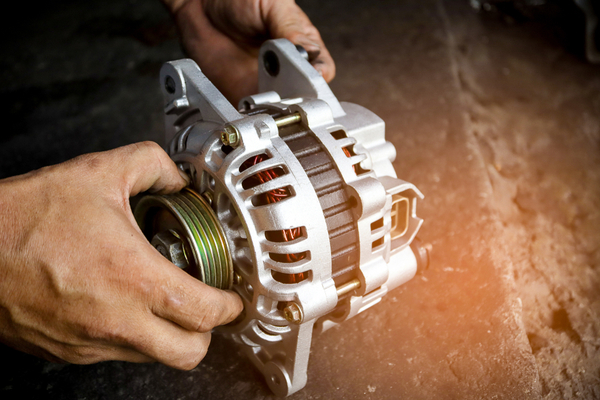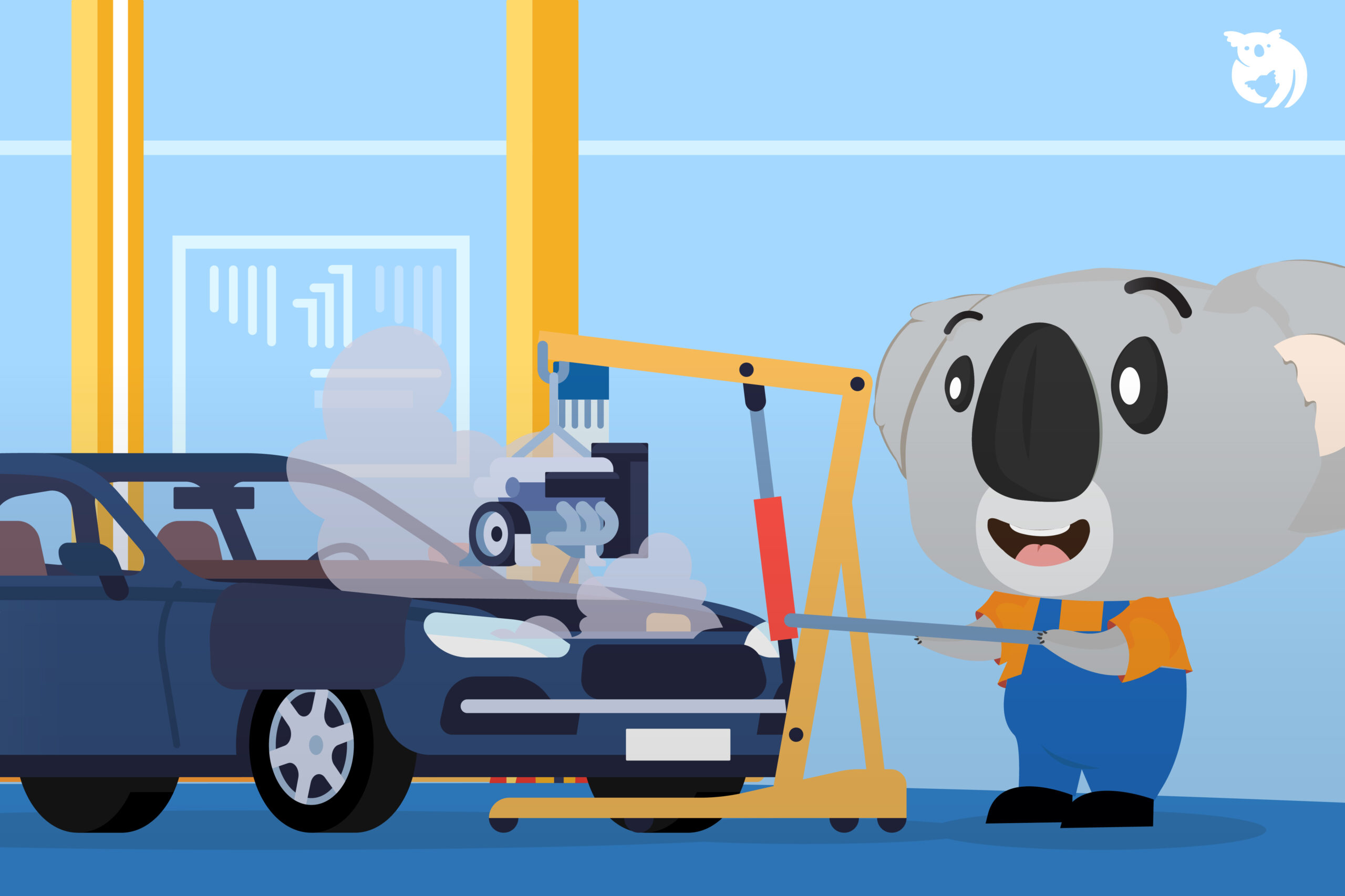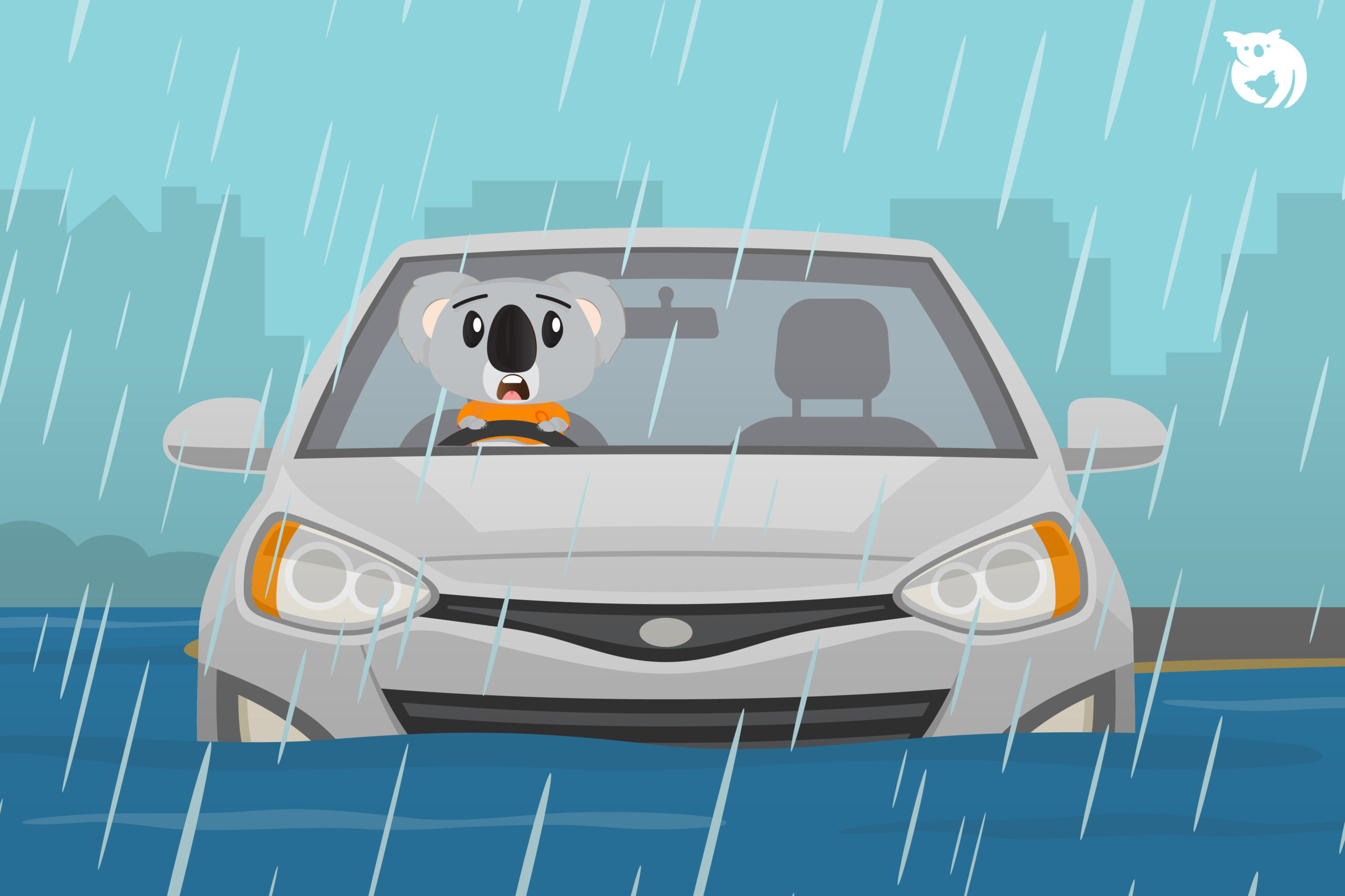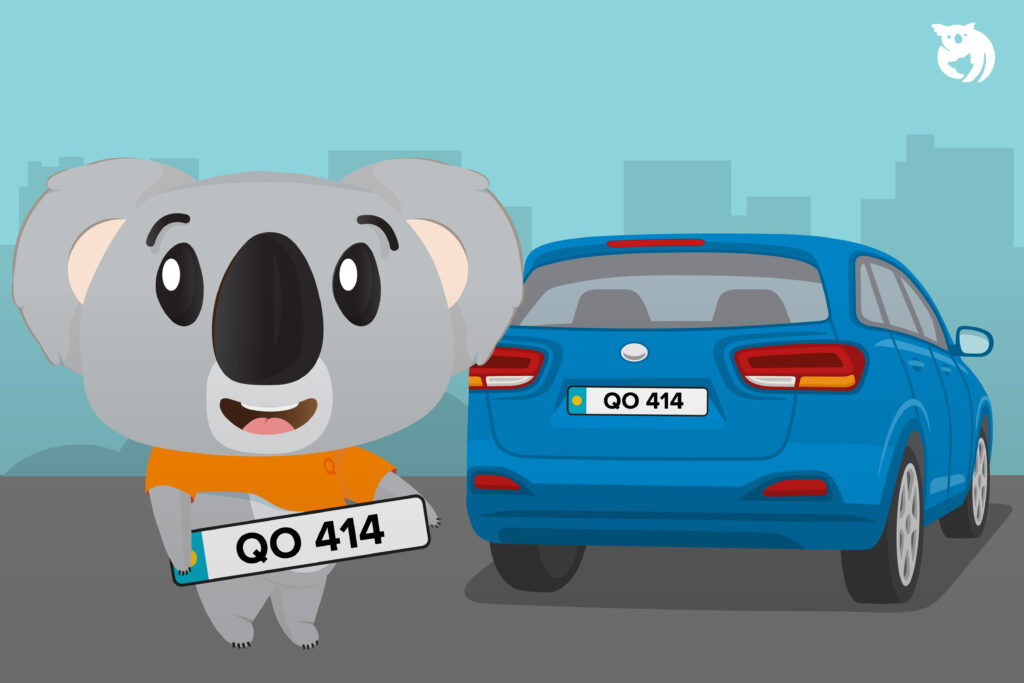The car alternator is like the heartbeat of a car. Without a functioning alternator, your car won’t come to life. Ask yourself these questions; has your car engine suddenly died while driving? Have you tried to start the car multiple times but it still won’t start? Have you replaced the battery but the car still won’t start?
Well, those are signs that your car alternator is having issues. It’s not because your car battery is dead or there’s a problem with the battery, especially if you just replaced it.
The Main Function of a Car Alternator
The main function of a car alternator is to generate electrical power within the car and it is a key component in the vehicle’s charging system. Basically, the car alternator generates electrical energy to be used by various car accessories. For example, car lights, air conditioning, and many more.
Not only that, the car alternator also acts as a battery charging agent to ensure smooth starting of the car.
The problem is, if the alternator is faulty, the car won’t be able to run. Our daily routines will be disrupted. So, how can we avoid being stranded on the roadside? That’s why you need to know the signs of a faulty car alternator.

Signs of a Faulty Alternator
It is important for us to know the signs of a car alternator problem. Generally, any communication between the car and the driver is through warning lights on the dashboard. Car warning lights on the dashboard will illuminate if there is any issue with any critical component of the car.
In addition to warning lights, here are some signs of a faulty alternator for your guidance and reference:
1. Battery Warning Light Illuminates
Modern cars are equipped with various types of warning lights that can be seen on the car’s dashboard. When the alternator is faulty, the battery warning light will illuminate if the car’s system detects a problem with the alternator.
The battery warning light on the car’s dashboard is usually in the shape of a battery icon – some vehicle models display the letters ALT (alternator) or GEN (generator).
Many people mistakenly assume that when the battery warning light illuminates, the issue is only with the battery itself. But in reality, the light can illuminate due to other factors such as loose battery cables or a faulty car alternator.
This warning light is connected to the vehicle’s computer system to detect the output voltage capacity of the alternator. Technically, the alternator functions optimally at a certain output voltage capacity – usually around 13-14.5 volts. The warning light will illuminate if the generated voltage exceeds the standard voltage limit or falls below the required voltage capacity.
2. Flickering Headlights
Have you noticed that your car headlights are dim and flickering? That’s a sign that your car’s alternator is experiencing a problem. As we mentioned earlier, the main function of the car alternator is to supply electrical power to the vehicle.
When the alternator is not functioning properly, the previously bright headlights can become dim. Therefore, if you observe that the headlights become brighter when accelerating or dimmer when slowing down, it is a serious indication of alternator damage.
A properly functioning alternator should not affect the brightness of the headlights under normal conditions.
Flickering headlights can also be a sign of an issue with your alternator. This occurs due to weak, inconsistent, or fluctuating voltage capacity in the alternator. Although this issue may seem like a minor inconvenience, it is advisable to take your car to a workshop for further inspection.
Flickering or dimming headlights are an important indicator that the existing alternator is no longer capable of generating sufficient electrical power.
3. Unusual Engine Noise
It is undeniable that cars produce various types of sounds. Some engine noises are normal, while others indicate serious issues with your car.
A faulty or malfunctioning alternator can produce growling or grinding noises. As you may know, the alternator is a complex component with several rotating parts that generate electrical current.
If any of these parts are worn out or damaged, they can produce specific noises. For example, if you hear a grinding noise, it may be an indication that you need to replace the existing alternator. Take your car to a workshop for further inspection. The grinding noise is often caused by a worn-out crankshaft pulley or a frayed belt.
4. Smell of Burning Rubber
If you smell a burning or rubbery odor, it’s important to check the alternator of your car promptly. The smell of burning rubber or excessively hot wires is commonly associated with alternator damage.
The car’s alternator works in conjunction with a complex belt system. If the belt cannot rotate freely, the excessive heat generated can create a burning or rubbery smell.
When the belt is located near the engine and subjected to continuous stress, it increases the risk of wear and produces an unpleasant burning rubber smell.
If you notice an unusual smell, such as the smell of burning rubber, when you start the engine, it may be a sign that your alternator is overheating. Simply put, it indicates that there is a problem with your car’s alternator.
A damaged pulley can disrupt the smooth movement of the belt, causing it to heat up. This, in turn, can lead to a burning rubber smell or a foul odor in your car.
5. Non-Functioning Electrical Components
As mentioned earlier, the car’s alternator is the main source of electrical power in the car’s engine. If the car’s alternator cannot provide sufficient electrical power, the electrical components of the car may not function properly. They may operate more slowly or not work at all.
Other electrical components that may be affected by the alternator include power locks, car wipers, and heated seats. Without an adequate power supply, these electrical components usually won’t function as usual or may stop working suddenly.
6. Car Won’t Start
When your car won’t start, the first thing that comes to mind is often a dead battery, right? But even after jump-starting the car battery, it still won’t start. Then you try replacing the battery with a new one, but it still won’t start. If that’s the case, it’s a clear indication that your alternator is experiencing a problem.
When your alternator is damaged, it fails to provide sufficient electrical current to help charge the car battery, resulting in a lack of power and preventing the car from starting.
It is recommended to consider using a voltmeter to determine whether the issue lies with the car battery or the alternator. A voltmeter is a tool used to measure the electrical difference between two points in a circuit. By using a voltmeter, it is the quickest way to detect alternator issues.
Steps to Test A Car Alternator Using A Voltmeter
There are 6 main steps to check the condition and functionality of a car alternator using a voltmeter:
- Check the condition of the alternator belt to ensure it is in good condition and properly tensioned. If the belt is loose, the alternator may not function properly;
- Check for any abnormal sounds coming from the alternator and inspect the alternator bearing;
- Turn off the engine;
- Connect a multimeter/voltmeter and check the voltage reading. A healthy battery should have a reading of 12.5 to 12.65 volts;
- Next, start the car engine and observe the multimeter/voltmeter reading. It should be at least 13 volts. A good alternator will have a reading between 13.5 to 14.5 volts;
- Also, check the voltage reading with a load. Turn on the headlights, air conditioning, and other electrical components. The reading from the alternator should remain within the same range of 13.5 to 14.5 volts, similar to the reading without a load;
- If the voltage reading is below 13 volts or above 15 volts, it indicates a possible problem with the alternator, such as loose cables or a malfunctioning alternator. In this case, it is recommended to seek assistance from an expert.
Why Can Car Alternators Fail?
For your information, the lifespan of an alternator is uncertain. Those fortunate ones may have their car alternators functioning without any issues throughout the lifespan of the vehicle.
However, such cases are rare. Typically, the lifespan of an alternator depends on the load it carries, the condition of the pulley, and the serpentine belt. Some alternators may fail after 50,000 km, while others can function smoothly for up to 150,000 km without any problems. As mentioned earlier, the lifespan of a car alternator is uncertain.
If your car is already at an advanced age, it is not uncommon for the alternator to fail. You are advised to check the charging voltage capacity, which should be around 13.5 volts, and ensure that it operates smoothly without any noise.
Here are some factors that can cause your alternator to fail:
- Fluid leaks in the alternator can significantly impact its overall performance. Engine oil or power steering fluid may enter the alternator, leading to failure and affecting its functionality.
- Driving habits can potentially affect and shorten the lifespan of the alternator. For instance, idling the engine while using various car accessories like the radio can increase the load on the alternator, thereby increasing the risk of wear and tear.
- Modern cars equipped with various accessories such as GPS units, heated seats, power windows, and others are exposed to a higher risk of alternator failure. All these electrical items rely on the alternator to be powered, thereby increasing the load it has to bear.
- The location of the car alternator, which is situated at the bottom of the engine, exposes it to the risk of damage from water and salt. Both elements can enter the alternator and cause damage.
So, what should you do when your car alternator fails? It depends on the extent of the damage. If the damage is not severe, the alternator can usually be repaired by replacing specific faulty components. However, if the damage is too extensive, the alternator needs to be replaced entirely. In Malaysia, there are various options available based on your budget, including new, reconditioned, or second-hand alternators.
What is The Price of A Car Alternator?
The price of a car alternator can vary depending on the year, model, and engine configuration of your car. However, generally, the price range for a car alternator is around RM100 to RM300, with labor costs ranging from RM50 to RM100, depending on the location.
For example, for a Perodua Myvi, the price of an alternator is approximately RM165 for the Myvi 1.0 variant, RM185 for the Myvi 1.3 variant, and RM210 for the Myvi 1.5 variant. However, these prices may vary depending on the type of alternator – OEM, reconditioned, or original equipment manufacturer (OE) alternator (OE alternators are usually more expensive than OEM products).
That’s all the information I have on this topic. If you need to renew your car insurance, you can easily do it with Qoala. Fast and convenient!

 EN
EN
 MY
MY








